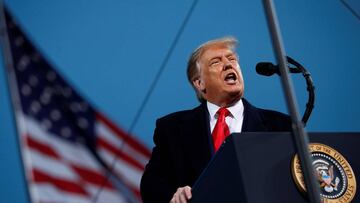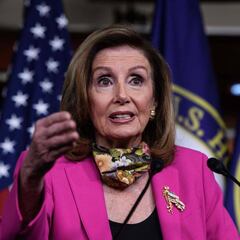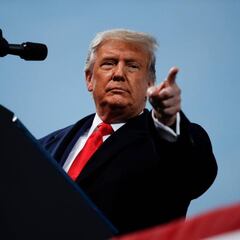When and how could a second stimulus check pass in the Senate?
There still remains the possibility of a second stimulus check of a maximum amount of $1,200 per adult, but when and how could it happen?

The November 3 election is just around the corner, however, this means the window is closing for Republicans and Democrats to find common ground on a second stimulus package.
There are approximately 11 million people out of work because of the coronavirus pandemic. The House of Representatives has stated it would extend its session until a deal is reached.
The Senate is scheduled to break until after the election following its current session, which ends on October 9, but that doesn't mean it's the final day a bill could pass. The House is prepared to postpone the start of its next break, originally scheduled for October 2, until a deal is reached. If negotiators close in on a deal, Senate Majority Leader Mitch McConnell could compel the Senate to stay in session, or to come back early to vote on a proposal.
Chance of checks before November 3
Based on remarks from Treasury Secretary Steven Mnuchin - who testified on Congress on Tuesday - the IRS could potentially start sending checks before November 3 if a new bill is passed by the third week of October.
Formal talks for the overarching bill have yet to restart. The total cost of the bill and how the money would be used are the main causes of the disagreement. The White House has hinted it could go up to $1.5 trillion. The Democrats have come down from their original $3 trillion proposal to $2.2 trillion, meaning there has been progress made to come to an agreement. The failed Republican 'skinny bill' was estimated at between $300 billion and $650 billion.
Democrat Nancy Pelosi has spoken of her confidence that a bill can still be pushed through by the end of September, telling the media outlet: "I'm optimistic. I do think that we should have an agreement. That's what we all want."
If the Senate passes the bill at the end of September, the House will have until October 1 to agree on it and the President will sign it as early as October 2. Once this chain of command passes through everyone, according to United States Secretary of the Treasury Steven Mnuchin the IRS will be in a position to start sending the second round of payments on the week of October 12.
Congress could postpone a relief decision until after November's election
With the November 3 election less than two months away, the atmosphere in Washington could be too politically charged to pass more economic relief bills, and leaders may want to see what happens after the election. The government's response to the coronavirus pandemic is already playing heavily in the campaign at all levels. If a deal isn't reached soon, the topic of a relief package could very well come up during debates held over the coming weeks.
Trump could be especially interested in second stimulus checks to provide financial relief in the form of direct payments. In addition to economic support, second stimulus checks could help boost the president’s re-election prospects. Republicans and Democrats previously agreed in principle on $1,200 second stimulus checks for individuals and $2,400 for married/joint filers.
Related stories
White House press secretary Kayleigh McEnany clarified on Wednesday during a press briefing. “The President was referring to the $500 billion bill that passed the Senate. It didn’t include direct payments. So, he wants more than the $500 billion, and he is very keen to see these direct stimulus payments and we hope that Nancy Pelosi will work with us in good faith.”
Parties interested in striking deal
While there is no guarantee there will be a stimulus deal, both parties appear interested in striking a deal. Given that many members of Congress spend October campaigning for re-election, a stimulus deal may not get done before November. That said, if a deal is to get done, the end of September or early October would likely be the last chance before the election on November 3. If second stimulus checks are included in a potential deal, Republicans and Democrats likely would need to reach consensus in the $1.5 trillion to $2.0 trillion range.

